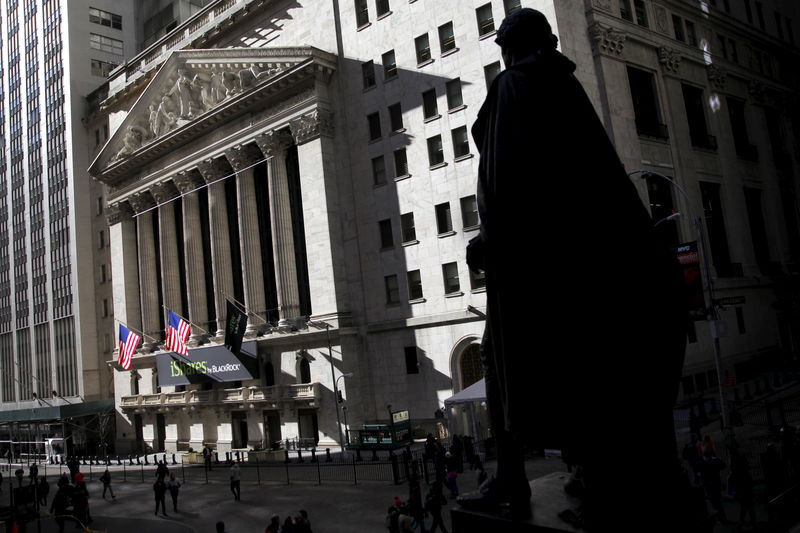LONDON (Reuters) - The number of sovereign investors planning to underweight U.S. assets in the next 12 months has jumped to 43 percent, a survey showed, with almost a third citing trade wars and increased protectionism as the biggest tail risk.
The shift in sentiment in the poll, conducted by the U.S.-based Sovereign Wealth Fund Institute in February, reflects a turbulent month in global stock markets and moves by U.S. President Donald Trump to slap tariffs on a variety of imports.
The survey, which covered 25 pension funds, sovereign wealth funds and other public asset owners with an estimated $1.21 trillion in assets, showed those planning to underweight U.S. exposure in the next 12 months had leapt from 25 percent in the December survey.
Meanwhile, the percentage of investors planning to overweight the U.S. slumped to 8.7 percent from 20.8 percent.
Around a third also said they planned to underweight passively-managed global equities, up from just 14.3 percent in December.
The reduction in risk appetite follows a rollercoaster ride for global equities in February after U.S. wage growth numbers sparked fears the Federal Reserve was behind the curve and would need to raise interest rates more quickly than expected.
Both the S&P 500 (SPX) and the Dow Jones (DJI) suffered their biggest percentage drops since August 2011 in early February, and ended the month down around 4 percent.
The survey, sent to media late on Tuesday, also revealed a notable shift in investor thinking on the biggest tail risk, with trade wars and increased protectionism leapfrogging a stock market bubble into pole position. Seven respondents chose trade wars in the February poll, up from just three in the previous quarter.
Trump has repeatedly rattled the sabre on trade over the past month, introducing measures against imported washing machines and solar panels. In early March he turned up the heat, threatening hefty tariffs on steel and aluminium imports.
The moves triggered another equity market sell off as investors fretted about retaliation from exporting countries.
Not surprisingly given the spike in volatility in February, there was an increase in the number of asset owners saying they planned to overweight cash in the next 12 months, to almost 50 percent, up from 41.7 percent in the previous quarter.
Just under a third of respondents continued to cite long U.S. technology equities as the most crowded trade, with some 30.4 percent saying they planned to underweight information technology stocks in the next 12 months. This was up from just 9.5 percent last quarter.
Tech stocks rallied almost 37 percent in 2017, but finished February flat (SPLRCT).
Volatility in listed equities also seemed to encourage investors to look closely at increasing their exposure to private markets.
Some 52.6 percent said they were planning to overweight private infrastructure over the next year, up from 30.4 percent in December. Half of respondents also said they planned to overweight private equity, up from 29.2 percent last quarter.
A recent report from State Street Global Advisors put sovereign wealth funds' private market holdings at over $1.6 trillion. However, some funds have struggled to get exposure to infrastructure assets, with demand consistently outstripping supply.
